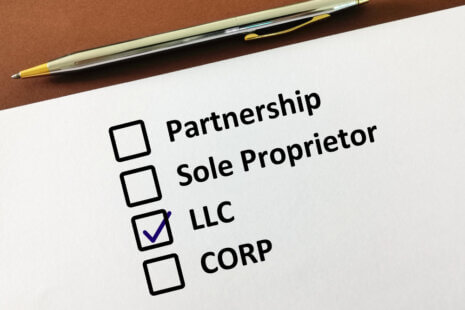The three most common business entities are…
- Sole Proprietorship – This is the simplest form of business entity and is owned and operated by a single individual. The owner has complete control over the business and is personally liable for all debts and obligations. Income from the business is typically reported on the owner’s tax return.
- Partnership – A partnership is a business entity owned and operated by two or more individuals or entities (partners). Partnerships can be general partnerships, where all partners share equally in profits and liabilities, or limited partnerships, where some partners have limited liability. Partnerships offer flexibility in management and decision-making and may be taxed as pass-through entities.
- Corporation – A corporation is a separate legal entity owned by shareholders. It offers limited liability protection to shareholders, meaning their assets are typically shielded from business debts and liabilities. Corporations have a formal management structure, with shareholders electing a board of directors to oversee corporate affairs. Corporations may be taxed separately from their owners, and they can issue stock to raise capital.
These three entities differ in terms of ownership, liability, taxation, management structure, and regulatory requirements. Business owners should carefully consider their goals, priorities, and circumstances when choosing the most appropriate entity for their business. It’s often advisable to consult with legal, tax, and financial professionals to evaluate the options and make an informed decision based on the specific needs of the business and its owners.




